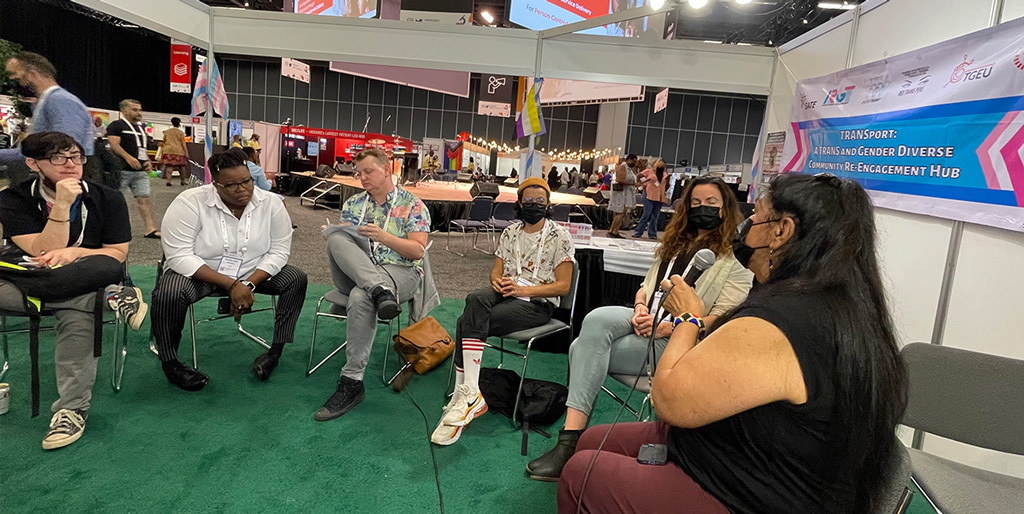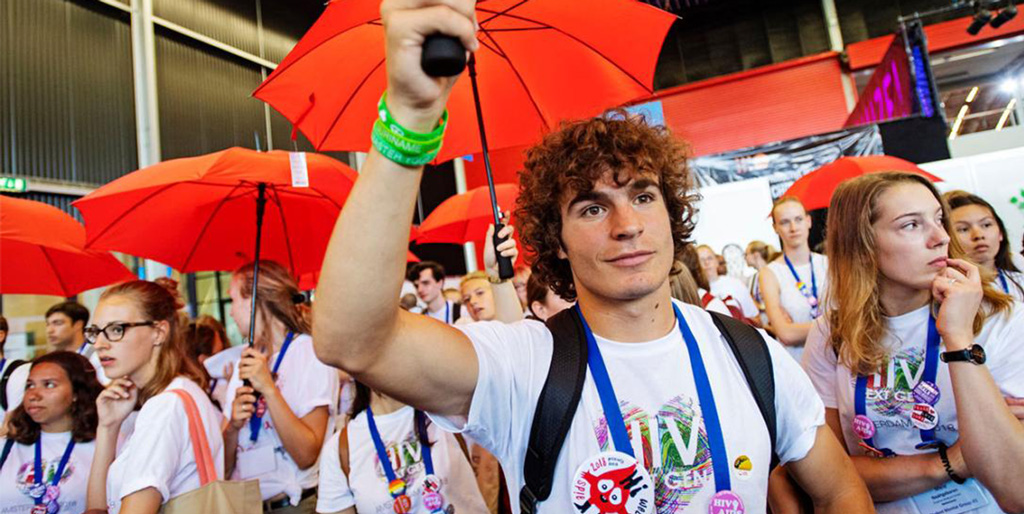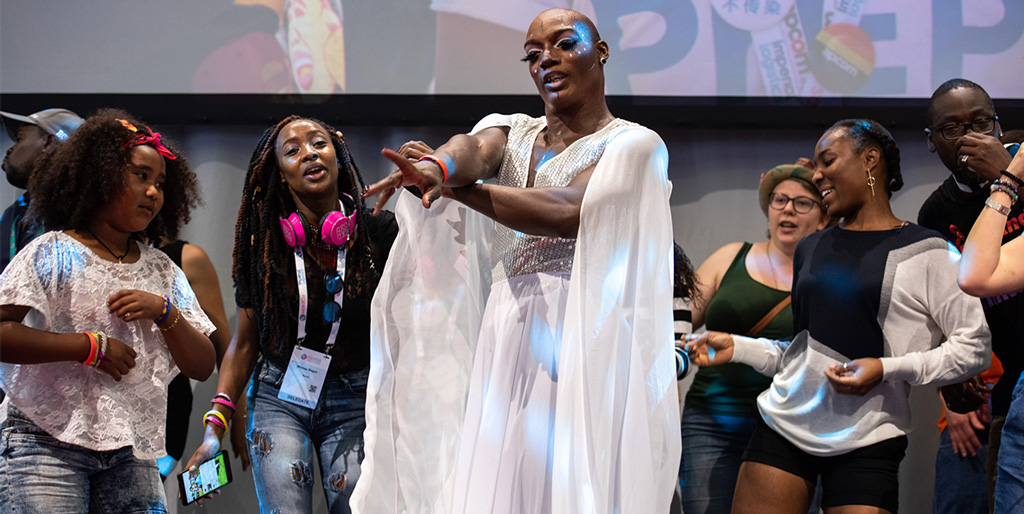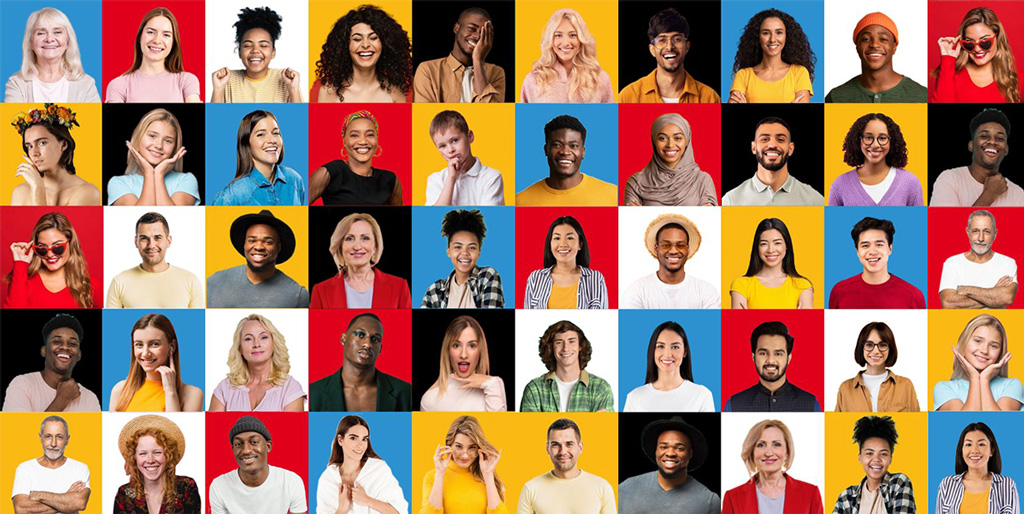“We believe that only through the joint efforts of the community and our allies can we achieve decriminalization of people’s lives and protect changes in approaches to social protection and the rights of vulnerable key populations.”
During the International AIDS Conference – AIDS 2024, as part of the regional #PutPeopleFirst campaign, Media Platform VirusOFF meets with leading experts from the Eastern Europe and Central Asia (EECA) region to discuss key aspects where health and human rights come to the fore. These issues not only have a significant impact on the lives of those living with HIV but also determine the effectiveness of public health strategies and programs in the region.
Walls are not the answer. #PutPeopleFirst!
You can learn more about the EECA region and AIDS 2024 at aids2024.virusoff.info and our social networks.
Ganna Dovbakh – Executive Director of the Eurasian Harm Reduction Association (EHRA), Rise & Decriminalize Movement, a well-known activist, trainer, and expert on community mobilization in Central and Eastern Europe and Central Asia.
Author of numerous publications, she has many years of experience working with non-governmental, donor, and governmental organizations and supporting civil society leaders and activists. She is an excellent organizer of various training seminars and socio-psychological trainings.
Ganna, please tell us about the Rise and Decriminalize movement, in which EHRA has one of the leading roles. What are its goals and objectives?
Ganna: The Rise and Decriminalize (R&D) movement seeks to unite different communities to criminalize a way of life or identity. The main goal of the regional community networks that initiated R&D is to create a broad movement to decriminalize communities, to engage diverse allies in advocacy from experts, and professional communities for whom the values of human rights advocacy, bodily autonomy, access to social and medical care, and public health are key.
We all remember the joint Chase the Virus not People campaign launched in 2018 at the International AIDS Conference in Amsterdam, which brought the issue of criminalization to donors’ attention. As a result, goals to decriminalize the lives of key populations have become part of the Global AIDS Strategy, and the strategies of foundations that support advocacy, such as the Global Fund.
We must now achieve these strategic goals – and to do so, we need to enlist a wide range of allies in the fight against criminalization, which is harmful to society and not good for public health.
Among the key challenges is reaching an understanding among members of different communities about what a world without criminalization would look like, because each faces unique forms and consequences of criminalization.
For example, sex work is often not directly criminal. Still, the activities associated with it are criminalized, such as the running of brothels – which are often apartments for sex workers to work in a more protected space, and the work of cab drivers, or the clients themselves may be criminalized. Criminalization takes very different forms for different communities, such as LGBTIQ+ people or people who use drugs. Decriminalization requires not only the removal of laws that explicitly criminalize behavior, but also the daily practices of law enforcement to discriminate, but also those that harm community self-organization and advocacy. There is also a great need for stats from professional organizations that support decriminalization, as right now only communities are actively opposing repressive laws. This is an important step because decriminalization often faces political and social resistance.
Our movement seeks to change the situation where only those affected by criminalization talk about its lack of pragmatism and harm to society. Medical experts or politicians often avoid the topic because of the political discomfort of talking openly about drug use, homosexuality, or sex work, the lack of understanding of the problem, and the lack of strong arguments for choosing pragmatic approaches to social policy.
Effective advocacy requires finding common language and arguments to unite all allies in the fight for decriminalization. The final challenge is to create a world where people are not punished for their identity or behavior, where there is no punishment for what was once labeled as sin in traditional societies, for crimes “against morality” in which there is no victim. The Rise and Decriminalize movement will work to unite communities, recruit new allies, and develop joint strategies to achieve this goal.
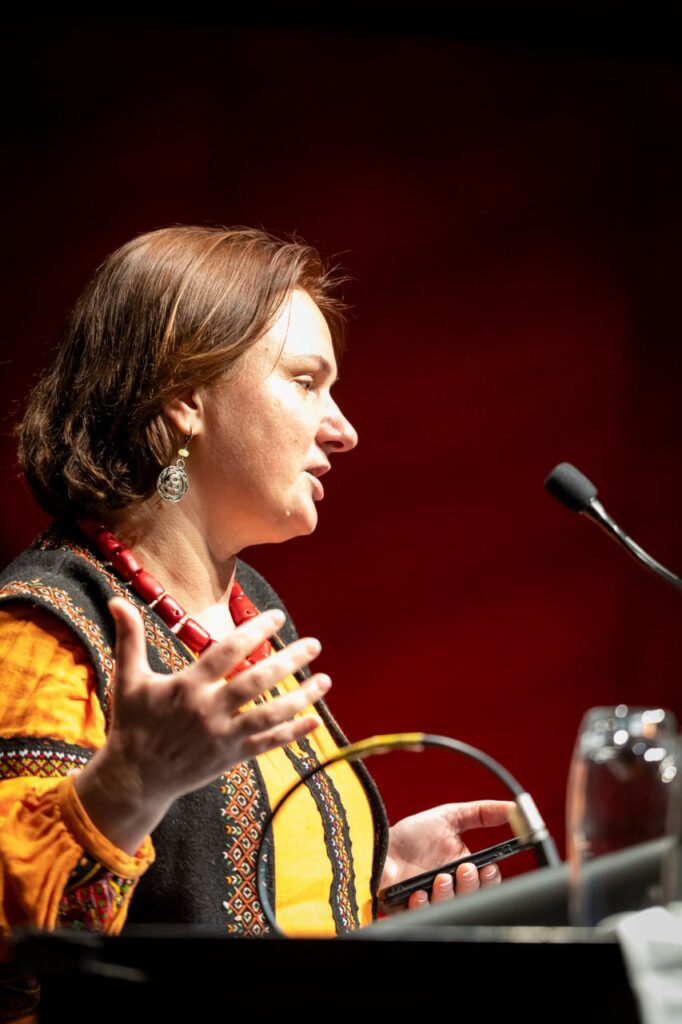
What are the goals of the Eurasian Harm Reduction Association (EHRA) in this movement?
Ganna: The strategy of the Eurasian Harm Reduction Association is very ambitious. Its first strategic goal is not only to decriminalize the use and possession of drugs for personal use but also to develop support for national allied movements that advocate for legislation to decriminalize, depenalize, and protect the rights of people who use psychoactive substances. This has not succeeded everywhere.
In the current context of russia’s war against Ukraine, as well as coordinated Russian actions against democracies and social self-organization in many countries in the region, achieving our goal is being pushed back in time. For us, mobilization means helping to bring together our members, civil society, and key community groups to advance advocacy on behalf of people who use substances in the CEECA region. Mobilization is the collective and coordinated action of alliances that work toward our common agreed-upon advocacy goals.
The Association attempts to engage as many organizations and individuals as possible to build a powerful coalition that can influence policy decisions and change the legal system. Such a movement must involve key communities (including people who use drugs, people living with HIV, viral hepatitis, tuberculosis, LGBT, youth and adolescents, women, relatives of people who use substances), civil society organizations, social policy experts, budget advocacy groups, public health organizations, as well as decision-makers, media, and religious leaders. We are therefore actively working to support Rise and Decriminalize, which aims to achieve this goal.
In your opinion, what can be done to improve funding for advocacy for key groups in the region?
Ganna: Funding for services and advocacy is becoming increasingly difficult as AIDS is no longer perceived as a key priority in either public health or public safety. To improve the situation, we need to broaden the argument, to focus our advocacy on providing key communities not only with HIV services but with a wide range of essential social services such as employment, housing, shelters, legal aid, and mental health support.
We are now working in several countries in the Central and Eastern Europe and Central Asia (CEECA) region together with Ministries of Social Policy to develop standards for services to be funded from local budgets. This approach will ensure stable funding and improve conditions for key populations. It is also important to continue to seek new sources of funding and build partnerships with international organizations.
The pressing issue is also that if repressive technologies and political pressure on civil society organizations, which is now very rapidly being applied under the guise of fighting “foreign agents,” are increasingly used, this could threaten not only our efforts in the field of advocacy for rights but also the survival of the community as a whole in the CEECA region.
At the moment the situation is such that Kyrgyzstan has announced its intention to ban all advocacy activities, in Georgia everything is also in question. And no one knows what will happen next. But what is clear is that if all NGOs in Georgia and Kyrgyzstan close down and this spreads to other countries, under the influence of Russia, it will mean the loss of services, advocacy, and access to information for key groups in most countries of the region.
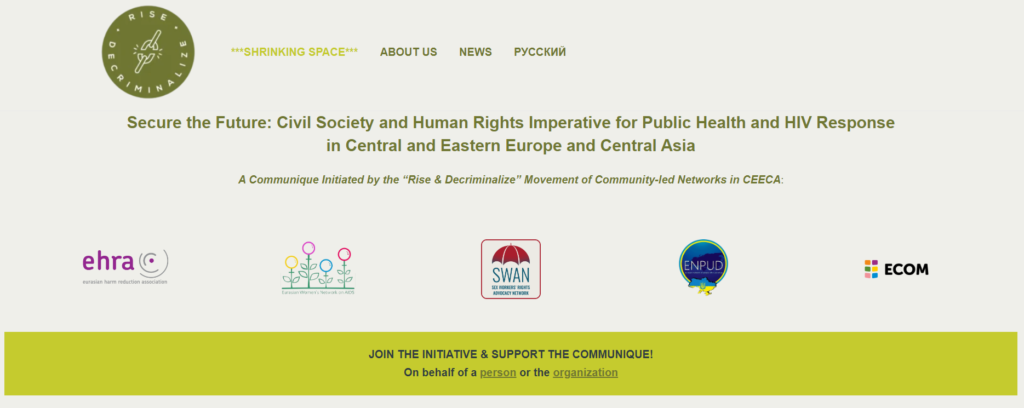
So, the role of civil society organizations remains key in solving problems in CEECA countries.
Ganna: Let me put it in the context of harm reduction: we already have several examples in our region that without community organizations providing services, chaos and disorder begin. People who use psychoactive substances will not come to AIDS centers themselves to get or exchange syringes get tested or get medication as re-exposure prophylaxis Criminalized and stigmatized people will not provide their data to government agencies.
If they don’t get substitution maintenance therapy, it will be nearly impossible to motivate people to go to their doctors. They won’t stay on daily antiretroviral therapy or hepatitis treatment without social workers to provide harm reduction and make sure the treatment is being done properly. If for once in this city, emergency room doctors on an overdose risk call brought the police with them, people would have no trust in the medical system.
Right now, only peer counselors, and outreach workers from harm reduction organizations have enough trust and are the bridge between the people on the streets and the doctors in their offices. “Foreign agent” laws, the threat of arresting a social worker for ‘drug propaganda’ or ‘homopropaganda’ will undermine this last bridge.
How is the Rise and Decriminalize movement trying to attract allies?
Ganna: The Rise and Decriminalize movement is actively working to recruit allies through peer-to-peer training for activists. This raises awareness about decriminalization and what it means for every community. We all must agree on what criminalization is and how to resist it. Developing arguments and finding common ground with advocates and clinicians helps to back up advocacy with professional stats.
This will allow the movement to find support among different segments of the population, strengthen its position, and build a broad coalition that supports decriminalization. In addition, it is important to involve professionals from different fields, such as lawyers, social workers, and medical professionals, to make advocacy evidence-based and more effective.
Our goal for the future is to enlist allies from international organizations and donor agencies to advocate for public health and democracy and to build coalitions to support these issues internationally.
Right now, we have focused all of our efforts on mobilizing and actively coordinating allies to oppose repressive laws against “foreign agents.” Without overcoming this problem, it may not be possible to advocate for decriminalization because activists who could do the practical work of providing services or advocating for legislative change will disappear, leave, or be arrested from many countries.
We didn’t just publish a communique – this is a real effort to bring allies together at every possible level. Our movement is now focusing on organizing with international partners in the public health and HIV response during AIDS 2024, with plans to work with media, democracy initiatives, and community groups that work for rights and equality. We plan to look for allies in the European Commission, and the European Parliament and to get the international community to act together. In my opinion, this is very important because we need to counter Russian propaganda that makes it look like the West is acting united.
Unfortunately, so far Russia and its allies have been acting in a coordinated way against democratic values, while Western partners are trying to ignore the problem and act “business as usual”. This business as usual without effective coordinated opposition to the attack on civil liberties and the right to unite could lead to disaster.
We believe that only through the joint efforts of the community and our allies can we achieve decriminalization of people’s lives and protect changes in approaches to social protection and the rights of vulnerable key populations.
#PutPeopleFirstEECA #RiseAndDecriminalize
Learn more about Eastern Europe and Central Asia at AIDS 2024 on our main web page: VirusOFF.info
Follow us on social media to keep up with important updates:
Instagram – Virus off
Facebook – Virus Off

